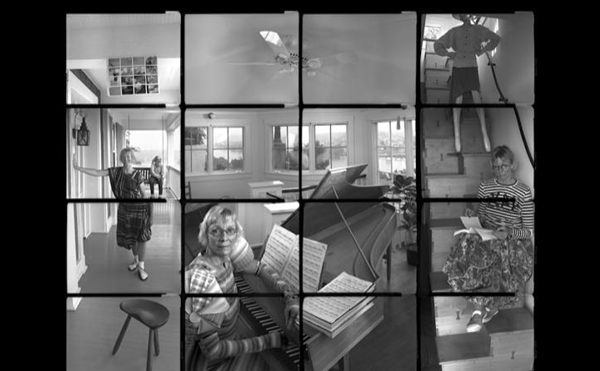Tim Lucas’ long and singular career as a movie critic has taken him down a number of interesting pathways, probably none more curious than his role as an in-demand provider of audio commentary tracks for DVD and Blu-ray releases.
The lifelong Cincinnati resident is best known as the editor and co-publisher of Video Watchdog, a meticulously rendered celebration of genre movies that calls itself “the perfectionist’s guide to fantastic video.” Martin Scorsese and Quentin Tarantino are among its devoted subscribers, and each has also rightly praised Lucas’ massive, one-of-a-kind biography of cult Italian horror director Mario Bava. (In fact, Scorsese wrote the intro for the 1,128-page opus, which Tarantino called “the best book on films ever written.”)
Lucas’ Bava expertise made him a natural resource for audio commentary tracks on the director’s various DVD/Blu-ray releases, which in turn has led to more commentary work, including tracks for a trio of recent Kino releases (just in time for Halloween) from notorious Spanish filmmaker Jess Franco. Lucas says he’s done 22 different commentaries to date, and has been contracted to do five more between now and early next year. It’s easy to discern why he’s in demand: His commentaries are rich with biographical information and unique insights.
CityBeat recently touched base with Lucas to discuss his approach to audio commentaries and to get an update on his latest endeavor, a movie script centering on a specific episode in the life of legendary movie producer Roger Corman.
CityBeat:
What are you trying to achieve when doing a commentary?
Tim Lucas:
My goal is to prepare a commentary track that will respond to what the movie is doing or showing at any given moment — with production information, anecdote or a visceral response of my own. The way I go at scripting my talks is very much like scoring a film would be for a composer. I usually start by writing out some raw thoughts on the film in question. When I get about 10 pages written, I watch the movie and break it down scene by scene, noting any dialogue or technique that may beg discussion, with time-codes. Then I decide what written information goes where and I polish that, which basically reveals to me how much is left to do. A finished script generally runs 20 pages or slightly more.
CB:
You deliver a wealth of biographical information in your commentaries. How much research do you do?
TL:
They all require a great deal, but with my Mario Bava commentaries, for example, that information was pretty much in me, or in my book manuscript at the time, because I was still working on Mario Bava: All the Colors of the Dark when I was recording most of those the first time around. With my more recent Jess Franco commentaries, there was a greater degree of critical response involved because not much is known or remembered by the participants. I did have to refer to some French language sources, where the most vital and reliable Franco research has been done.
CB:
Are you a fan of commentary tracks in general?
TL:
I used to listen to them religiously, especially when I was reviewing one in tandem with a DVD or LaserDisc release, but I finally hit a wall because so many are either unimaginatively handled or seem to be done to stroke someone’s ego. There was a specific point in home video history when commentaries went from being the exclusive province of films that warranted them to something else, a way of making unworthy films somehow look worthier. It gave hack directors a way of seeming dignified and important. So I got to a point where I gave every commentary track a 10-minute test. If it didn’t hold my attention by then, I would jump ahead to halfway through, see if it was any better and, if not, eject the disc.
CB:
What’s the current status of your script (about Corman) for The Man with the Kaleidoscope Eyes?
TL:
It’s being produced by Saïd Ben Saïd for his company SBS Productions, which also has films by David Cronenberg and Brian De Palma currently in pre-production. Joe Dante expects to begin filming in Los Angeles sometime next spring. My co-writer, Charlie Largent, and I are very excited and looking forward to what happens next.
For more information on
TIM LUCAS
and Video Watchdog, go to videowatchdog.com.






